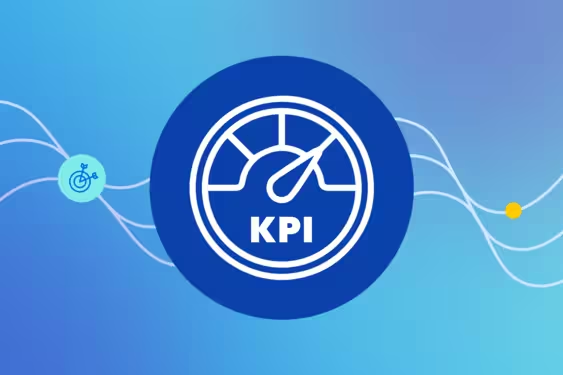Machine learning and artificial intelligence (AI) are being dubbed the Fourth Industrial Revolution, and for good reason. AI is poised to significantly change the way humans work, including sales professionals. But while many see AI as still a “way of the future,” innovative sales teams are harnessing the power of AI today.
One way companies are benefiting from AI for sales is by utilizing AI-powered tools to automate tasks like contact and activity capture and mapping to Salesforce. Not only are they freeing up their sales teams from dreaded (and often repetitive) admin tasks, but they are leveraging the plethora of data that often gets lost in spreadsheets and sticky notes and making it visible to sales, marketing, and customer success teams. Sales leaders can benefit from AI for sales as well as it proactively uncovers risk and exposes inefficiencies on their teams.
But before we get into the specifics of how sales teams can use AI to boost their bottom line – and how tools like People.ai can help companies do this – let’s break down the basics of AI in sales first.
What Is Artificial Intelligence In Sales?
AI in sales is the use of advanced algorithms and analytical tools to automate and improve sales operations. By automating repetitive tasks and analyzing customer data, AI can help sales teams work more efficiently and close more deals. Additionally, machine learning tools can be used for sales forecasting, conducting more accurate and efficient QBRs, customer behavior prediction, and uncovering actionable insights.
The Need For Automation In Sales
So, is sales automation really necessary for improving business processes and, ultimately, your bottom line?
Gartner analysts say that,"By 2026, 65% of B2B sales organizations will transition from intuition-based to data- driven decision making, using technology that unites workflow, data and analytics." Research has also shown that sales teams currently spend only about 30% of their time in front of customers. The rest of the time is spent on data entry, meetings, prospecting, scheduling more meetings, and other day-to-day tasks that have little to do with the actual sales cycle.
With a sales automation solution in hand, middling sales assistants can turn into high-performing teams, simply by virtue of freeing up more their time at work. More time means more opportunities for selling.
What AI Can Do For Sales
Consider this quote from 2019: “Artificial intelligence (AI) is already making sales teams more productive and effective. We’ve seen major developments and it’s not just making sales forecasts more accurate, it’s also reducing the administrative burden on sales reps and revenue operations by automatically logging sales activities (e.g. calls, meetings, emails, texts), tracking and analyzing contact relationships, providing sentiment analysis, and providing 'virtual' sales coaching through opportunity scoring and suggesting next best actions.”
“Early AI adopter companies will experience exponentially increasing impact on their sales results because sales leaders and those sales resources who are closest to the buyer will finally have real-time access to the sales intelligence they deserve,” says Dana Therrien of SiriusDecisions (now Forrester).
Now, thanks to recent developments in generative AI technology, nearly all of the things Dana predicted are becoming a reality for sales teams.
With AI sales tools like People.ai, sales teams get accurate activity data on every interaction with customers and prospects. This means that their sales organization can more easily discern patterns in activities that lead to won/closed deals, or identify where sales reps are repeatedly selling to the same buyers instead of going higher up in accounts. They are also able to accurately attribute pipeline – a big win for marketing which has struggled for years to accomplish this.
There are numerous other ways companies are taking the capabilities of People.ai and using them to drive even greater ROI for the entire enterprise. When it comes to sales team efficiency, we’ve seen companies benefit in six key ways:
- Increase Customer Relationship Management (CRM) adoption: People.ai eliminates manual CRM data entry and captures all contact and activity and maps it to the right opportunity accounts. Sales teams start to see the AI-powered CRM as a dependable “single source of truth” and adoption increases.
- Boost seller productivity. By reducing time spent on manually logging data, sales teams win back 27% of their time – time that can be spent on more productive tasks, like engaging with prospects and closing deals.
- Data-driven sales coaching: People.ai lets sales coaches set goals and track all sales activity levels for every rep. With benchmarking data, coaches can identify areas for targeted coaching — helping each rep achieve their best.
- Improve sales forecasting and pipeline analysis: People.ai allows sales teams to access more data than ever before, giving real-time pipeline analysis and the ability to track deal trends. Armed with this data, companies can get key insights into the specific factors that help sales pros win and close deals.
- Self-healing contact database: CRMs are notorious for having incorrect, outdated, or missing data. People.ai continually updates your CRM in real-time so you always have the best data available.
- Create unprecedented buying group visibility: Buying groups are a secret to deal success, but figuring out who needs to be involved and when and where can be challenging. People.ai reveals this data to sales teams, giving teams the information they need to make sure they’re engaging with the right people in the buying group at the right time.
Will AI And Machine Learning Replace Sales Jobs?
No, AI is not coming for your sales jobs. Artificial intelligence is not there to replace sales professionals. Instead, it acts as an assistant and can perform or automate certain tedious tasks, speed up sales processes, and help professionals find sales opportunities more easily.
The Potential Future Of AI For Sales
Artificial intelligence is no longer a far-off idea. Your company can harness the power of AI today with People.ai and start improving your sales team’s effectiveness. Take a deeper dive into how new AI technologies like generative AI can improve your sales team’s effectiveness in the list, Generative AI Use Cases for Sales Organizations.
Frequently Asked Questions About AI For Sales
What are AI and machine learning in sales?
AI in sales can be used to help manage and predict customer behavior, identify cross-selling and upselling opportunities, automate repetitive tasks, and improve forecasting accuracy. Ultimately, the goal of AI in sales is to boost efficiency and effectiveness while reducing costs.
Will AI and machine learning replace sales representatives?
Sales representatives play an important role in the sales process, and it's unlikely that AI and machine learning will completely replace them.
However, AI and machine learning can be used to automate certain tasks that are typically performed by sales representatives. This can help sales representatives focus on more important tasks and ultimately improve the efficiency of the sales process.
What are some sales AI tools?
At People.ai, we offer the following sales AI tools:
- Data platform: This translates signals from activities and engaged contacts into the pipeline and improves deal execution.
- Account management solutions: This gives your sales manager a 360-degree view of the who, what, and how of each account.
- Opportunity management solutions: This tool helps reps analyze and pinpoint leading indicator activities, gain a better understanding of the health of their sales teams' pipelines, and improve and adhere to effective methodologies.
- PeopleGlass: This tool consolidates Salesforce updates into one single spreadsheet, saving your team precious time.
How can AI support sales?
AI can support sales in countless ways, including:
- Eliminate manual data entry and increase adoption of Customer Relationships Management systems
- Automate time-consuming tasks, buy sales reps' time back and, in turn, boost their productivity by at least 27%
- Allow sales coaches to set specific goals and track reps' activity levels and progress
- Improve predictive forecasting by providing real-time pipeline analysis
Ready to find out how your sales organization is doing with AI? Take the GTM AI Maturity Assessment.
Related Insights
Explore more expert insights on AI adoption, sales execution, and revenue intelligence to help your team close more deals with confidence.


.avif)
